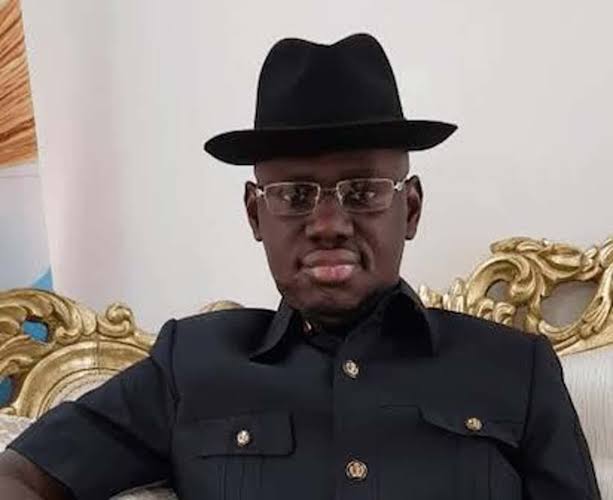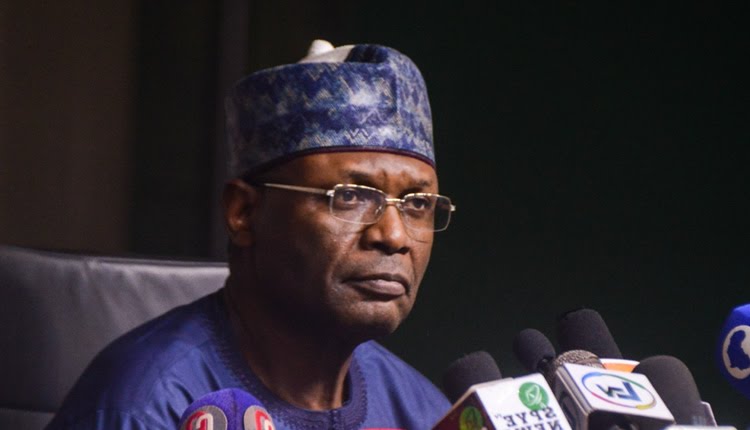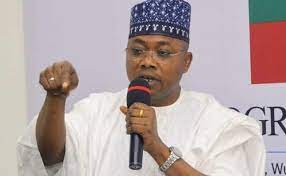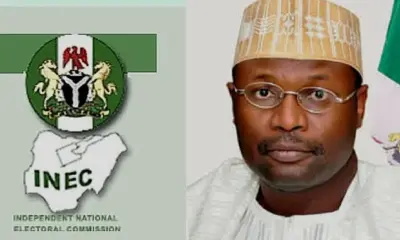News
Party primaries: Court cases delay procurement of sensitive election materials says INEC
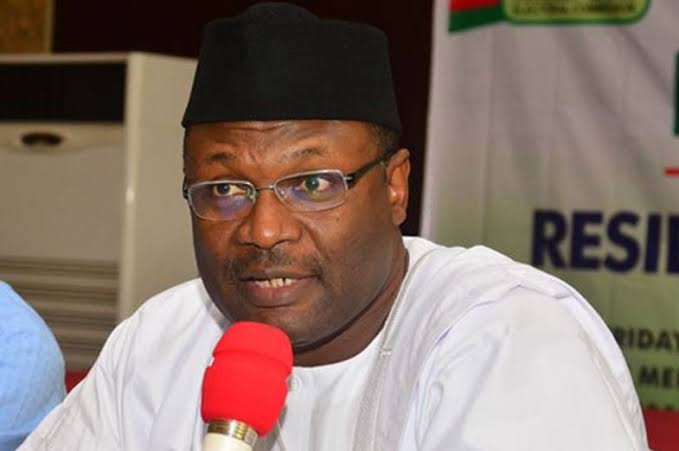
Concerned by its adverse effect, the Independent National Electoral Commission (INEC), has decried the increasing number of court cases arising from the conduct of party primaries.
The Commission noted that the development is eating into vital time for the preparation and procurement of sensitive materials for elections.

Chairman of INEC, Prof. Mamood Yakubu, made the observation at the opening of a 4-day Capacity Building Workshop for Justices and Judges on Election Matters, held at the National Judicial Institute, Abuja, on Monday.
He noted that so far, the Commission has been joined in about 600 cases relating to primaries and the nomination of candidates by political parties for the 2023 General Election.
Prof. Yakubu however noted that as a consequence of a similar workshop organised for Justices and Judges on Election Matters ahead of the 2019 General Election, there has been a sharp reduction in the number of cases arising from election petitions and consequently a reduced number of elections nullified by the Election Petition Tribunals.
He said: “For instance, 30 elections were upturned by the Tribunals in 2019 as against over 100 in a previous election.” Even so, in 23 out of 30 constituencies (i.e., 76%), the elections were only set aside in some polling units and not the wholesale nullification of elections in entire constituencies.”
Speaking further on the areas that need more attention, the INEC Chairman said the Commission had identified areas where efforts need to be improved in order to reduce litigation. He said “cases arising from the conduct of primaries for the nomination of candidates by political parties are on the increase.”
“So far, we have been joined in about 600 cases relating to the conduct of recent primaries and the nomination of candidates by political parties for the 2023 General Election. Only two weeks ago, one political party served about 70 Court processes on the Commission in one day seeking to compel us to accept the nomination or substitution of its candidates long after the deadline provided in the Timetable and Schedule of Activities for the 2023 General Election had elapsed.
“Some of the cases will go up to the Supreme Court. The implication is that we are still dealing with issues of nomination of candidates thereby eating into vital time for the preparation and procurement of sensitive materials for the elections. It also means that the Courts will be dealing with the same issues long after the General Election”.
On court orders, Prof. Yakubu reassured the Judiciary that INEC would continue to be a law-abiding institution by obeying court orders, but did not mince words in lamenting observed cases of conflicting court orders. “I wish to reassure the Judiciary that the Commission will continue to abide by Court orders. However, strict adherence to stare decisis is critical for us as an Election Management Body”.
“A situation where a trial court sought to vary the judgement of the Supreme Court by ordering the Commission to issue a Certificate of Return in favour of a candidate whose emergence during the party’s primary election has been nullified by the apex Court (and affirmed by the same Court following an application for clarification) put the Commission in a difficult situation.”
“The matter is currently being litigated again, possibly all the way back to the Supreme Court, thereby wasting the precious time of the courts, which are already inundated by even the most improbable cases by litigation-happy individuals and parties”.
The INEC Chairman also commended the progressive provisions of the new Electoral Act 2022, which he said are intended to address some of the lapses in the now repealed Electoral Act 2010 (as amended).
He said, “The new Electoral Act contains eighty new provisions intended to improve our elections, and address some of the lacunae in the repealed Electoral Act 2010 (as amended), provide legal backing to the technological innovations introduced by the Commission overtime, and extend timelines for the nomination of candidates and for other electoral activities.”
He continued: “Similarly, the new Electoral Act confers exclusive jurisdiction to hear pre-election cases on the Federal High Court with regard to candidate nomination in order to reduce forum shopping by litigants, abuse of court process, and reduction in the spate of conflicting judgments by courts of coordinate jurisdiction.”
The workshop is being organised with support from the International Foundation for Electoral Systems (IFES), USAID, the United Nations Development Programme (UNDP), DAI, and Policy and Legal Advocacy Centre (PLAC).


